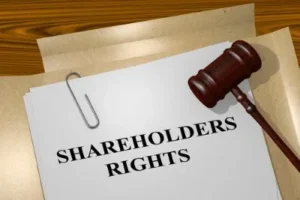Introduction to the Open Lending Class Action Lawsuit
The Open Lending class action lawsuit seeks to represent purchasers or acquirers of Open Lending Corporation (NASDAQ: LPRO) securities between February 24, 2022 and March 31, 2025, inclusive (the “Class Period”). Captioned Bradley v. Open Lending Corporation, No. 25-cv-00650 (W.D. Tex.), the Open Lending class action lawsuit charges Open Lending and certain of Open Lending’s current and former top executives with violations of the Securities Exchange Act of 1934.

If you suffered substantial losses and wish to serve as lead plaintiff of the Open Lending class action lawsuit or just have general questions about you rights as a shareholder, please contact attorney Timothy L. Miles of the Law Offices of Timothy L. Miles, at no cost, by calling 855/846-6529 or via e-mail at tmiles@timmileslaw.com. Lead plaintiff motions for the Open Lending class action lawsuit must be filed with the court no later than June 30, 2025.
Read on for answers to the eight most frequently asked questions by investors about the Open Lending lawsuit.
1. What Are the Allegations in the Open Lending Class Action Lawsuit?
Open Lending provides lending enablement and risk analytics solutions to credit unions, regional banks, finance companies, and captive finance companies of automakers.
The Open Lending class action lawsuit alleges that defendants throughout the Class Period made false and/or misleading statements and/or failed to disclose that: (i) defendants misrepresented the capabilities of Open Lending’s risk-based pricing model; (ii) defendants issued materially misleading statements regarding Open Lending’s profit share revenue; (iii) defendants failed to disclose Open Lending’s 2021 and 2022 vintage loans had become worth significantly less than their corresponding outstanding loan balances; and (iv) defendants misrepresented the underperformance of Open Lending’s 2023 and 2024 vintage loans.
The Open Lending class action lawsuit further alleges that on March 17, 2025, Open Lending disclosed that it would be unable to timely file its Annual Report for 2024 as it “require[d] additional time to finalize its accounting and review processes specifically related to its profit share revenue and related contract assets.” On this news, the price of Open Lending stock fell more than 9%, according to the complaint.
Then, on March 31, 2025, the Open Lending class action lawsuit alleges that Open Lending released its fourth quarter and full year 2024 financial results, revealing quarterly revenue of negative $56.9 million due in part to “a $81.3 million reduction in estimated profit share revenues related to business in historic vintages” “primarily due to heightened delinquencies and corresponding defaults associated with loans originated in 2021 through 2024.”
Open Lending also disclosed a net loss of $144 million, due to Open Lending being “negatively impacted by the recording of a valuation allowance on [its] deferred tax assets of $86.1 million, which increased [its] income tax expense during the period,” according to the complaint. Open Lending additionally announced that it had appointed a new CEO as well as a new COO, effective immediately, both of whom would be replacing defendant Charles D. Jehl, who had been operating as Open Lending’s CEO, COO, and CFO simultaneously, the complaint further alleges.
The Open Lending lawsuit alleges that on this news, the price of Open Lending stock fell nearly 58%.
2. What Are the Reasons Behind the Open Lending Class Action Lawsuit?
The reasons behind the Open Lending lawsuit are rooted in allegations of corporate misconduct and misrepresentation. These claims suggest that Open Lending Corporation may have engaged in activities or made statements that misled investors about the company’s financial health or prospects. Understanding these allegations is vital for assessing the potential outcomes of the lawsuit.
The lawsuit’s foundation lies in the assertion that investors relied on inaccurate or misleading information when making investment decisions. Such claims, if proven, can have significant legal and financial implications for the company and its stakeholders. Investors need to understand the basis of these allegations to evaluate the potential risks and rewards associated with the Open Lending lawsuit.
By comprehending the reasons behind the lawsuit, you can better assess how it might affect your investments in Open Lending Corporation. Whether the claims involve financial statements, business practices, or other corporate actions, understanding the lawsuit’s basis will help you make informed decisions about your involvement and potential next steps.
3.Who is Affected by the Open Lending Class Action Lawsuit?
The Open Lending class action lawsuit primarily affects investors who purchased shares during the period in which the alleged misconduct occurred. If you invested in Open Lending Corporation. during this time, you could be part of the affected class and eligible for compensation if the lawsuit succeeds.

Identifying whether you are part of the affected group is crucial for understanding your rights and potential benefits. The lawsuit may involve a specific time frame and set of circumstances that define the class of investors who can participate. Knowing these details will help you determine your eligibility and take appropriate action.
In addition to investors, the Open Lending class action lawsuit can also impact the company’s executives, board members, and other stakeholders. The outcome of the lawsuit could influence Open Lending’s reputation, financial stability, and future operations, affecting all parties associated with the company. Staying informed about the lawsuit’s progress is essential for anyone connected to Open Lending Corporation.
4. What Is the Lead Plaintiff Process in the Open Lending Class Action Lawsuit?
The Private Securities Litigation Reform Act of 1995 allows investors who purchased Open Lending securities during the class period to seek appointment as lead plaintiff in the Open Lending class action lawsuit. The lead plaintiff plays a crucial role in representing the interests of the entire class.
Criteria for Lead Plaintiff
To be appointed as lead plaintiff, an investor must meet specific criteria:
- Financial Interest: The investor must demonstrate that they have the largest financial stake in the outcome of the case.
- Typicality: The lead plaintiff’s claims must be typical of those of other class members.
- Adequacy: The lead plaintiff must be able to adequately represent the interests of the class.
5. What Are the Benefits of Serving as a Lead Plaintiff in the Open Lending Class Action Lawsuit?
- Negotiating more competitive attorney fees and reducing litigation costs.
- Managing the litigation by overseeing the progress of the case and reviewing important filings.
- Participating in mediation and settlement discussions.
- Having a voice in decision-making processes regarding the settlement.
- No financial risk, as lead counsel covers all costs and expenses and are paid only if they secure a settlement or judgment recovery for the class
- Potentially enjoying long-term benefits from governance reform resulting from the litigation.
6. What Are the Responsibilities the Lead Plaintiff Will Have in the Open Lending Lawsuit?
- Selecting, monitoring, and overseeing Lead Counsel.
- Reviewing and commenting on court filings on behalf of the class.
- Discussing litigation strategies with the Lead Counsel.
- Attending depositions (if necessary) and giving a deposition.
- Attending hearings (if necessary).
- Participating in mediation and the trial (if necessary).
- Provide input on any decision concerning the settlement of the securities class action.

7. What Are the Eligibility Criteria for Lead Plaintiff Appointment in the Open Lending Lawsuit?
To be eligible for appointment as the lead plaintiff in the Open Lending class action lawsuit, an investor must meet the following criteria:
- Securities Acquisition: The investor must have purchased or acquired Open Lending Corporation (NASDAQ: LPRO) securities between February 24, 2022 and March 31, 2025
- Financial Losses: The investor must have suffered financial losses as a direct result of the alleged securities fraud perpetrated by Open Lending and its executives.
- Typicality and Adequacy: The investor’s legal claims must be typical of those asserted on behalf of the class, and they must demonstrate their ability to adequately represent the interests of the entire class through experience, resources, and the absence of conflicts of interest.
It is crucial to note that both domestic and international investors who meet these criteria are eligible to seek appointment as the lead plaintiff in the class action lawsuit, as courts have consistently recognized the rights of non-U.S. investors in securities class actions.
8. What Are the Legal Requirements for Prevailing in the Open Lending Lawsuit?
- Material Misrepresentation or Omission
- Scienter
- Connection to Securities Transaction
- Reliance
- Economic Loss
- Loss Causation
Contact Timothy L. Miles Today About an Open Lending Class Action Lawsuit
If you suffered losses in Open Lending stock, call us today for a free case evaluation about an Open Lending class action lawsuit. 855-846-6529 or tmiles@timmileslaw.com (24/7/365).
Timothy L. Miles, Esq.
Law Offices of Timothy L. Miles
Tapestry at Brentwood Town Center
300 Centerview Dr. #247
Mailbox #1091
Brentwood,TN 37027
Phone: (855) Tim-MLaw (855-846-6529)
Email: tmiles@timmileslaw.com
Website: www.classactionlawyertn.com





